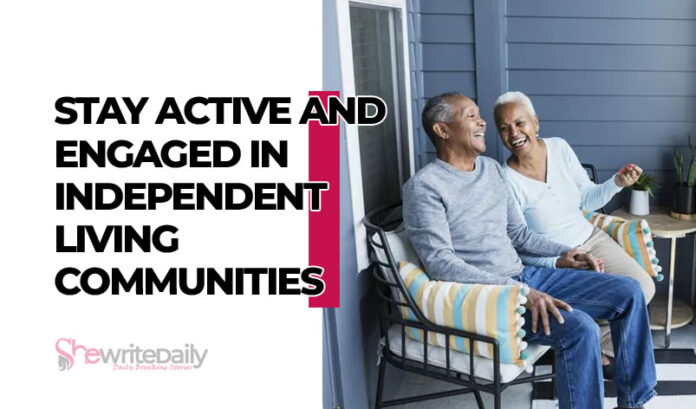By choosing independent living, you can explore new passions with friends and have more free time. On-site amenities like greens, pool tables, and movie theaters bring fun to your front door.
Communities that successfully incorporate exercise into their cultures find enhanced community engagement.
Exercise
Getting enough physical activity is crucial to a long life. It boosts blood flow to the brain, improving concentration and cognitive functioning. And it helps you feel great. Studies show active people are likelier to live seven years longer than those who don’t exercise regularly.
Assisted living communities like Westminster Baldwin Park often offer fitness classes and group walking, helping residents establish a daily workout routine and build community while getting fit. For those new to exercising, starting slowly and building up slowly can make a big difference.
Creating a daily routine and staying consistent with exercise can help individuals break from a sedentary lifestyle and balance physical, social, and intellectual pursuits. Creating a sense of accountability can help, too. This could be through making exercise class names more catchy or using incentives like a points system for attendance. Many communities find that once they introduce wellness activities into the culture, more residents participate and keep up with them.
Socialize
A healthy social circle gives aging adults a sense of belonging and purpose that can help them defy feelings of loneliness or isolation. Social interactions also offer a powerful mental boost, keeping seniors intellectually stimulated and emotionally invested.
Independent living communities often include plenty of opportunities to get social, including fitness classes, group meals, walking clubs, and other community activities. Many also provide access to transportation that enables residents to explore the surrounding area and try new things while bonding with others. These activities can range from coffee at the cafe with a friend to lively board game nights. Often, the options are endless, which is great news for aging adults.
Volunteer
Seniors can spend their free time volunteering to help others, which keeps them active and socially connected to improve their mental health. Volunteering can include physical activity, such as serving meals or cleaning up community gardens.
Seniors who are volunteers can use their lifetime of knowledge and experience to benefit the organizations that they support. Their dedication can inspire those around them and leave a lasting legacy.
When considering which types of volunteering to participate in, consider your skills and interests. For instance, if you have a particular talent, such as art or playing the piano, consider finding an agency to put those talents to good use. You can also volunteer for a specific purpose or project you are passionate about, such as helping pets or children. Depending on the type of volunteering you choose, it can aid you to stay mentally sharp and give you a sense of purpose in retirement.
Pursue Hobbies
Pursuing hobbies doesn’t just keep seniors entertained. It enhances cognitive function, improves mood and mental health, and builds social connections. Mastering new skills and developing a passion for an activity fosters a sense of accomplishment that can help boost self-esteem. Hobbies with a physical component—like taking waltz classes, gardening, or practicing yoga—also strengthen the body and promote better health by alleviating arthritis symptoms and amplifying flexibility.
From coffee at the cafe with a friend to lively board game nights, independent living community amenities and activities offer plenty of opportunities for residents to discover new hobbies, cultivate creativity, and experience the joy of sharing their interests with others.


